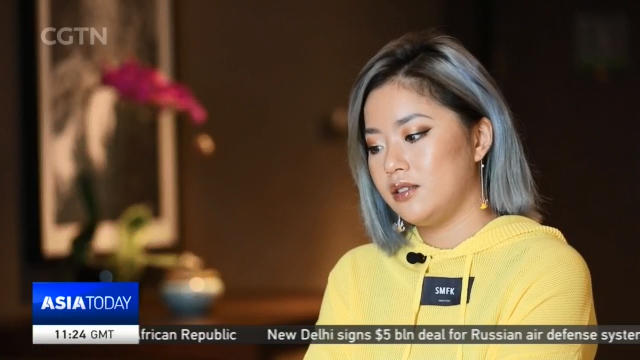
19:54, 06-Oct-2018
Idol-Making Industry: China seeks own identity amidst strong regional influences
Updated
19:06, 09-Oct-2018
03:30

The Chinese remake of South Korean idol reality show "Produce 101" launched earlier this spring, and has proven to be wildly popular. But it has also generated debate over China's idol industry. Our reporter Ren Xueqian takes a look at how these rising idols and their management teams in China are seeking to build something of their own.
The 11-member Chinese pop group, Rocket Girls, continues to win over scores of fans. They've garnered close to five BILLION views via their performances on the Chinese edition of "Produce 101", the hit South Korean survival talent show. The 10-episode Chinese series was backed by tech giant Tencent. On the show, the elimination rate was very high for female contestants, or "idol trainees".
CAO YONGSHOU PRESIDENT, BEIJING AIMAN DATA TECHNOLOGY "'Produce 101' only picked 101 contestants out of more than 13-thousand auditions, that's less than a 1% chance of making the cut."
In a male version of the Chinese spin-off, created by and streamed on Baidu's AiQiyi, the competition was only slightly easier.
CAO YONGSHOU PRESIDENT, BEIJING AIMAN DATA TECHNOLOGY "'Idol Producer' selected 100 contestants out of 19-hundred, so there was a 5 percent chance of making the cut there."
The style of the trainees has sparked debate, with fans pointing out similarities between the Chinese and Korean idols. But some in China disagree.
LIN CHAOZE CONTESTANT ON "IDOL PRODUCER" "A lot of artists in China are adding more Chinese elements to their work, so I don't really think there is a K-pop undertone among Chinese artists."
WANG JU CONTESTANT ON "PRODUCE 101 CHINA" "China has never really done anything similar to what South Korea has done with its idol-industry. South Korea has more experience in the field and naturally it will draw more attention."
One industry insider says controversies that arise from cultural integration are necessary for the continued growth of China's idol industry.
CHEN YUETIAN PARTNER, SEA OF STARS CAPITAL "I think the creation of any cultural product starts from cultural integration and controversies that arise from it. It's through this that we learn about our differences and get a clearer idea of what we need to do to create and innovate. So I don't see this as such a bad thing."
And to win or lose, the trainees who competed in these talent shows say they've benefited, with some reflecting on bittersweet moments.
QIANG DONGYUE CONTESTANT ON "PRODUCE 101 CHINA" "This show gave me the opportunity to showcase myself. So I think I won in a different way."
LIN CHAOZE CONTESTANT ON "IDOL PRODUCER" "Of course debuting on the show was my dream, it's a shame that I didn't win. But, the team has other plans for us to debut soon."
And for former modeling-management-assistant-turned popular idol trainee, Wang Ju, she's now busy with her own studio, proving to her fans how much she can accomplish even without winning the competition.
WANG JU "CONTESTANT ON "PRODUCE 101 CHINA" "I feel 'Produce 101' has put my life back on track. I was a turning point for me."
REN XUEQIAN CGTN "And this opportunity is a turning point for China as well. While its idol industry is actively searching for a new identity, experts say much work remains for it to stand out from regional competitors. RXQ, CGTN."

SITEMAP
Copyright © 2018 CGTN. Beijing ICP prepared NO.16065310-3
Copyright © 2018 CGTN. Beijing ICP prepared NO.16065310-3